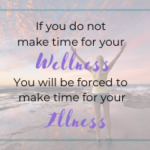
What is burnout ?
Burnout is a state of emotional, physical and mental exhaustion. It’s usually caused by excessive stress over a prolonged period of time as well as feeling overwhelmed and drained. Although it isn’t a diagnosable psychological disorder it is, from my experience, becoming increasingly more common and needs to be taken seriously. In fact, a huge proportion of the people coming through the doors in Made at the moment are suffering from burnout or a related complaint. In fact, the number of people we are seeing with burnout has tripled since before the pandemic!
Spotting the signs of burnout
There are a number of signs that someone is experiencing a burnout, and these tend to be both physical and mental and include, headaches, stomach aches, lack of energy, intestinal issues, feeling depressed, exhaustion, cynicism, feeling unable to do your job or to cope, feeling powerless.
Strategies to cope with burnout
Whilst burnout can feel all-consuming and inescapable when you’re in the midst of it, it’s very important to remember that there are a number of different strategies that you can employ to try to address the symptoms. What works best will vary from one person to the next, so it’s often a case of trial and error in order to establish which is most effective for you. These include:
•Exercise
I’m a firm believer that regular exercise is the key to staying both physically and mentally fit, healthy and happy. When we exercise the body releases chemicals such as endorphins, serotonin and dopamine which boost our sense of well-being and suppress hormones that cause anxiety.
Fortunately there are now a bigger range of exercise classes and sports out there than ever before.
•Create a morning ritual
Start the morning with a ritual that lets you hit the ground running, make the most of your day, and stay positive and in control. All of our rituals are different, but the key is that by setting them we are taking control of our morning, and therefore our lives.
• Write yourself notes
Gratitude notes have been used for years to help affirm positive thinking. Write down
three things that you’re grateful for on a piece of paper and stick them somewhere where you’ll see them a lot. Gradually they really will sink in and help you to feel positive and grateful.
• Get some fresh air
Fresh air has been shown to help digest food more effectively, improve blood pressure and heart rate, strengthen the immune system and a whole wealth of other benefits, so it’s no surprise that being out in the fresh air makes the mind feel better too. Try and get out in the fresh air each day in order to help feel invigorated, energised and ready to face the world.
•Prioritise self-care
Schedule a few hours a week to go to bed early for example, or to read a book or put on a face mask. It will help to maintain your physical and mental wellbeing when life begins to return to normal.
• Meditate
Focus on your wellbeing from a positive point of view by looking at ways that can build resilience. Focus on character building activities like yoga and meditation. These can help you learn to adapt to change and be strong for all that is coming. I have resilience meditations on https://welcometomade.com on demand.
Going forward
Raising awareness of burnout is crucial to helping more and more people to realise that they are not alone in what they’re experiencing, but also by bringing it to the forefront then people will be less scared to ask for and seek help. Is it something you’re suffering from?
By Penny Weston

About the author
Fitness, wellness guru and nutrition expert Penny Weston (https://welcometomade.com)
Penny runs award-winning health spa, Moddershall Oaks and leading wellness centre, MADE; a 360 wellness centre complete with boutique fitness gym, studios, treatment rooms, retail shop and health café.
MADE, her forward-thinking wellness centre was born from a personal journey of health for Penny. Penny struggled with her relationship with food for a long time resulting in many negative side effects including tiredness, bloating, bad skin and stomach cramps.Having been hospitalised throughout her journey and suffering with a collapsed lung at a young age due to severe asthma, Penny looked to fitness and nutrition to turn her health around.
Penny focuses on all angles of health and wellbeing from mental health to physical health and she is dedicated to demonstrating how by making small changes to routines, people can experience big results when it comes to happiness, energy levels and mental state.




